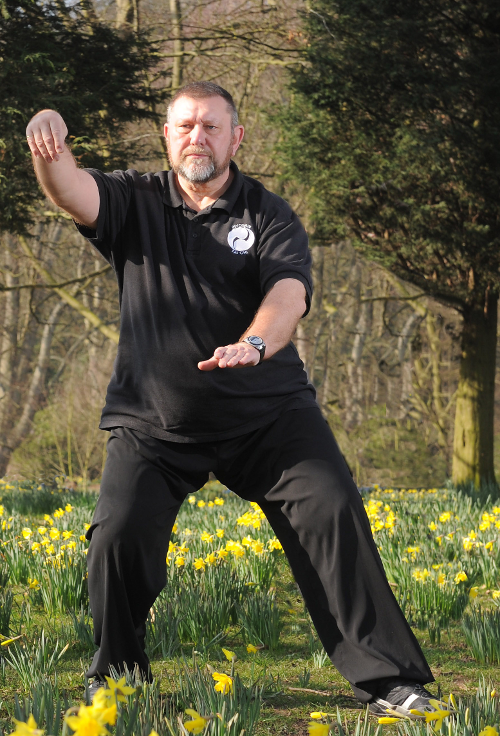Mugai Ryu
Traditional, japanese swordfighting from Samurai with Katana for cultivating mind and body.
David Jackson has been teaching Tai-Chi for over 35 years. During that time he has developed a slow relaxed style of Tai-Chi which suits both the physically active and the more sedate student.
Inyoshin TaiChi emphasises relaxation as a key tool to developing and maintaining both physical and mental skills. Students are taught to “go at their own pace” TaiChi is as varied as the number of people wishing to learn. Each student is empowered to take responsibility for their own progress.
 Inyoshin Teachers all teach the same basic consistent form; this is then used as the foundation for individuals to further develop during personal training. David would describe it thus, “Like great tenors singing the same aria, it’s the same song but one can easily differentiate between them as they make the song their own” Understanding the basic’s is in fact liberating!
Inyoshin Teachers all teach the same basic consistent form; this is then used as the foundation for individuals to further develop during personal training. David would describe it thus, “Like great tenors singing the same aria, it’s the same song but one can easily differentiate between them as they make the song their own” Understanding the basic’s is in fact liberating!

David has an in depth knowledge of the original fighting roots of the art and reminds students of the importance of understanding the original intention of the movements. This gives advanced students the opportunity to use this knowledge in visualisation during practice.The 24 form style of TaiChi taught by Inyoshin teachers is based on the “Beijing Short Form” which was developed, by the Chinese government in the 1950’s, to help maintain the health of the nation. We also practice, Eight fine treasures, Silk Reeling, Chi Gung and Push / Sticking Hands exercises. Inyoshin TaiChi works with Local Authorities and Charity groups teaching TaiChi to varied groups of students. We have recently been teaching a sitting TaiChi form as a response to the number of physically challenged student wanting to learn this wonderful art form. The sitting form does require movement of the arms and body above the waist.